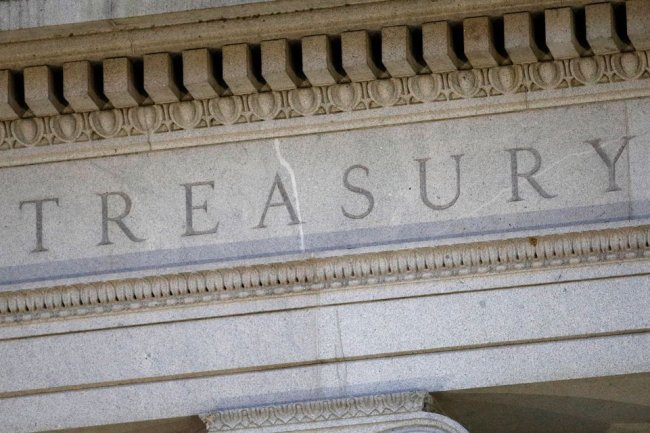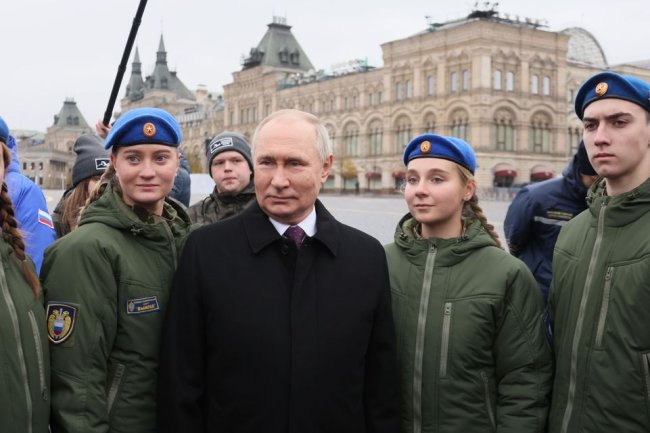Leave No Pet Behind: Returning U.S. Soldiers, Diplomats Work to Bring Home Furry Friends
U.S. Navy Seals rescue cats and dogs in elite Sudan operation, the latest in line of war zone animal evacuations Louise Hastie outside the War Paws shelter in June in Erbil, Iraq. Photo: War Paws By Jessica Donati July 30, 2023 9:00 pm ET WASHINGTON—When U.S. ambassador to Sudan John Godfrey was huddled in Khartoum while dodging bullets and airstrikes, there was one question that he hadn’t expected: How much did the embassy staff’s cats and dogs weigh? Navy SEALs, who were dispatched to save diplomatic personnel from the clashes that had erupted between feuding Sudanese generals, had agreed to evacuate pets as part of their diplomatic rescue mission. The only stipulations were that the four-legged passengers fit in carry-on bags and that their weight was counted down t


Louise Hastie outside the War Paws shelter in June in Erbil, Iraq.
Photo: War Paws
WASHINGTON—When U.S. ambassador to Sudan John Godfrey was huddled in Khartoum while dodging bullets and airstrikes, there was one question that he hadn’t expected: How much did the embassy staff’s cats and dogs weigh?
Navy SEALs, who were dispatched to save diplomatic personnel from the clashes that had erupted between feuding Sudanese generals, had agreed to evacuate pets as part of their diplomatic rescue mission. The only stipulations were that the four-legged passengers fit in carry-on bags and that their weight was counted down to the pound.
“The rule of thumb was basically that it had to fit on your lap. We were very fortunate that we didn’t have any outsized pets at the time,” a senior U.S. official said in an interview with The Wall Street Journal.
The Sudan escape marked a lucky break for the cats and dogs of the U.S. mission in east Africa—and another chapter in the growing history of military and diplomatic pet evacuations.
In Vietnam, the U.S. military used working dogs to sniff out explosives and detect enemy forces hiding in rivers and forests. But when America withdrew in 1975, the dogs were classed as equipment and left behind. The unfitting fate led to the creation of Robby’s Law in 2000, which allows retired dogs to be brought home and adopted if possible.

Air Force sentry dogs and handlers marching in Vietnam in 1966.
Photo: U.S. Air Force/PhotoQuest/Getty Images
After the Sept. 11 attacks, the U.S. and its allies launched wars targeting al Qaeda and other extremist groups across the world. As new fronts opened in the war on terror, so did efforts to rescue the animals that U.S. military and diplomatic personnel befriended in countries where they were deployed.
“If you go to anyone that has served in a war, they’re not open about the horribleness of war but they’ll talk about the dog or cat that they were feeding,” said Michelle Smith of Puppy Rescue Mission, a nonprofit that brings home about 300 animals a year from U.S. military bases around the world.
The military has generally cooperated with nonprofits to help soldiers and other personnel bring home their pets. In June, the Defense Department also announced new rules that allowed relocating military personnel to be reimbursed for pet travel expenses. The U.S. government now covers shipping and quarantine fees, saying it recognizes the role pets play in military families.
Louise Hastie, a British veteran of the Iraq war, began rescuing cats and dogs after completing her military service. Through the nonprofit War Paws, she is often the first port of call for British and American soldiers in Syria, where the locations of personnel are supposed to stay highly classified.

Louise Hastie with some of the dogs that primarily live outdoors in packs.
Photo: War Paws
Hastie says she has smuggled so many cats and dogs out of Syria that she now knows exactly the bases and military installations where everyone is located, often alarming military leaders stationed there.
“The soldiers will contact me and they will say, I’ve got this dog, or I’ve got this cat, but I can’t tell you where it is,” Hastie says of soldiers in Syria. “The minute they say that, I’m like, yeah, I know where you are. Just let me deal with it.”
Animal-rescue groups in war zones often come under fire for saving pets when human lives are at stake. But their advocates argue that cats, dogs and other animals can provide life-changing comfort to the human survivors of war.
In a sign of public support, nonprofits that work to rescue these animals have gained sizable social-media followings. Appeals on social media for logistical or financial support to bring home a particular cat or dog regularly attract hundreds of comments and shares, not to mention money.
One internet star is a tabby cat named Screech, who lived at the U.S. Embassy in Kabul and was evacuated by the nonprofit Kabul Small Animal Rescue, a clinic and shelter.
The clinic initially tried to evacuate its cats and dogs, including Screech, during the chaotic U.S. withdrawal from Afghanistan, but was unsuccessful. The U.S. military made matters worse by releasing the dogs inside the airport before leaving, and it took the clinic days to gather them up again.

Screech the cat now lives with a family in Canada.
Photo: Bonnie Davidson
Screech, who remained at the clinic, returned to the Kabul airport six months later with the Taliban’s blessings and flew to Canada with more than 250 cats and dogs cleared for evacuation.
Bonnie Davidson, Screech’s new owner, says the cat’s antics, which include disappearing into a chimney, have earned her an Instagram following of more than 2,000 fans.
“We couldn’t find her and totally panicked. You know, oh my God, how are we going to tell all her Instagram followers we’ve lost Screech?” Davidson said.
The tabby eventually popped her head out of the chimney upside down to look around. Davidson said the tabby’s escapades will soon be chronicled in a book for children.
Despite widespread public support and enthusiasm for diplomatic and military rescues, nonprofits say that donations have fallen as the focus has shifted away from places such as Afghanistan and Syria.
“People do not care about Afghanistan anymore,” said Charlotte Maxwell-Jones, the director of Kabul Small Animal Rescue.
In Sudan this year, the rescue was carried out by the U.S. government rather than a nonprofit, though the State Department has kept the operation low profile.
The State Department said it couldn’t release the names of the pets or the people involved. But, said the U.S. official, “I knew the names, breeds and weight for all of our furry friends.”
Write to Jessica Donati at [email protected]
What's Your Reaction?

















